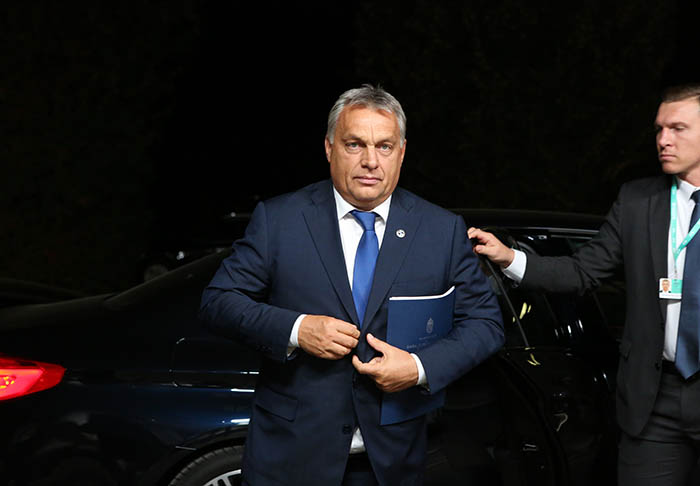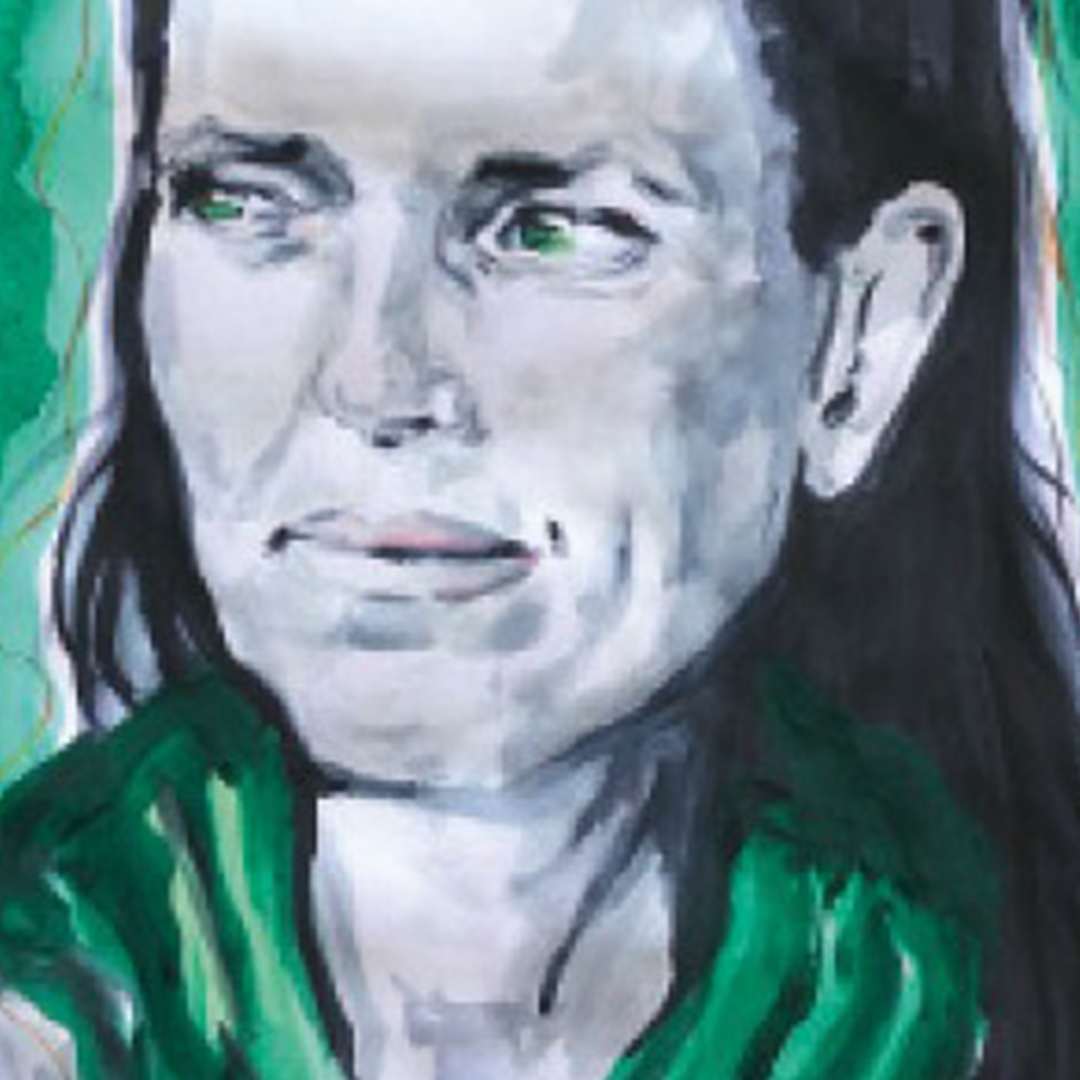8 Apr 2020 | Hungary, News and features
[vc_row][vc_column][vc_column_text]

Viktor Orbán Credit: European People’s Party/Flickr
[/vc_column_text][vc_column_text]Hungary’s prime minister Viktor Orbán, leader of right-wing nationalist party Fidesz, has responded to the coronavirus crisis by pushing through sweeping emergency laws that have no time limit and have enormous potential to limit media freedom.
These laws essentially allow Orbán to rule by decree, which presents a huge threat to democracy and freedom of expression. While Index acknowledges that extraordinary measures need to be taken to protect lives, the passing of emergency laws of this nature for an indefinite time period was described in an Index statement as “an abuse of power”.
Under the emergency laws, journalists can be imprisoned for up to five years for publishing what the authorities consider to be falsehoods about the outbreak or measures taken to control it. But what exactly constitutes falsehoods is open to interpretation.
As Index notes, Hungary already has “one of the worst free speech records in Europe”. This further blow to journalists’ ability to report freely and objectively on the actions taken by the government is crippling for press freedom. It follows a pattern of state authorities infringing on press freedom under the guise of quashing “fake news” that Index has recorded happening globally in the wake of the crisis.
Transparency about the official numbers of those infected and those who have died from Covid-19 is critical for public safety. The scale of the outbreak will inform public behaviour and support for health services. Authoritarian regimes around the world such as North Korea and Turkmenistan have reported zero cases, the implausibility of which suggests censorship of the real figures by these countries’ despotic leaders.
Orbán is on the road to joining these leaders as, under the emergency laws, journalists are unable to hold the government to account over the accuracy of the data. Orbán has singular control of the public knowledge of the number of confirmed coronavirus cases, which, according to a government website, is 817 to date. See more here about this on the Index map tracking attacks on media freedom in Hungary.
Hungary’s neighbour Austria, which has a smaller population and recorded its first cases just 8 days before Hungary, has to date recorded 12,206 cases.[/vc_column_text][/vc_column][/vc_row][vc_row][vc_column][vc_basic_grid post_type=”post” max_items=”3″ grid_id=”vc_gid:1586344862424-03642fb1-d46b-2″ taxonomies=”4157″][/vc_column][/vc_row]
16 Jan 2020 | News and features
[vc_row][vc_column][vc_single_image image=”111830″ img_size=”full” add_caption=”yes”][vc_column_text]“When I talk about what’s happening in Saudi Arabia, I liken it to a really abusive relationship. First they [the state] gaslight you, they try to convince you that you’re not being abused, that this actually is for your own protection, for your best interests. Then when that doesn’t work out, then they beat you up and… when you escape from them they hunt you down and kill you,” said Safa Al Ahmad, award-winning Saudi Arabian journalist, at the launch of the winter 2019 issue of Index on Censorship magazine.
The issue is on the techniques that macho leaders around the world are using to stifle dissent, democracy and discussion, and how people are fighting back. From Brazilian President Jair Bolsonaro ranting against and disparaging media to Hungary’s Prime Minister Viktor Orbán using a rhetoric of family values to deny the LGBT community and others the same rights as “traditional” nuclear families, the magazine takes a global view.
Al Ahmad was joined for a panel discussion, held at Google HQ in London, with bestselling Chinese novelist Xiaolu Guo, Hungarian activist Dóra Papp and satirist and author Rob Sears. The panel was chaired by Rachael Jolley, editor-in-chief of Index on Censorship magazine.
Each panellist was invited to discuss a world leader. Al Ahmad opened with her striking analogy of abusive relationships to discuss Crown Prince of Saudi Arabia Mohammed bin Salman. She highlighted that her analogy was not an exaggeration, citing women’s rights campaigners who have ended up dead or in prison. “I think the feminist movement in Saudi must have been the most frightening for the state,” she said, explaining the lengths the state has gone to in order to silence women.
Al Ahmad also remarked on the absolutist relationship the Saudi state has with the media: “We [Saudi Arabia] have inventing the rulebook on shutting down dissent of any sort, so the state owns all the media. There is no independent media whatsoever to shut buyout – they already own it.”
Papp observed that Orbán has not locked up or killed dissenters “yet”, but that he is at the stage of attempting to create a sense of discord amongst Hungarians, thereby preventing unified protest. She said: “What this kind of leadership from Orbán is really pro in is… making the nation believe that they have to stay divided in order to protect their own identities and their own values.”
Family values is part of the rhetoric of Orbán’s government, which “concludes in a list of disadvantages for LGBT groups, for single mothers, for anyone who is thinking outside the box”. Papp, a successful campaigner, said that we need to be really cautious and not let this narrative divide people.
Guo, discussing China’s president Xi Jinping, spoke about the importance of a dominating personality in a “strongman” leader in order to control the narrative of a country. She said of Xi: “He has an extremely tough way of dealing with internal turmoil but also a very interesting and mysterious way of dealing with international conflict.” She also commented that tension between Xi and US President Donald Trump seems to be bringing about a cold war that “we thought had disappeared 20 years ago”.
A discussion about macho men would not be complete without a dissection of the presidency of Trump, which Sears did by observing how Trump stifles free expression, not by killing journalists, but by setting the media agenda. Sears highlighted two of Trump’s oratory traits: “One is that he is basically impossible to ignore and the other is that he is basically impossible to engage with.”
He explains that Trump’s repeated use of outrageous, implausible (think “build the wall” and “lock her up”) but clear images forces the media to report on them. He said: “You [journalists] can’t help but respond to them and make them the focus of attention, meaning that it’s tricky for other topics to make it into the highest levels of conversation.”
“I’m sure every politician finds the right language for that purpose. UK Prime Minister Boris Johnson cleary does and some of the other leaders we’ve talked about do as well… I don’t know if they are deliberate methods… but I do think that it’s been extremely effective against a decent, fruitful public debate in the states and worldwide.”
Click here to read more about the current magazine
Listen to Rachael Jolley and deputy editor of the magazine, Jemimah Steinfeld, discuss the current issue on Resonance radio here [/vc_column_text][/vc_column][/vc_row][vc_row][vc_column][/vc_column][/vc_row]
19 Jun 2019 | Magazine, Magazine Editions, Volume 48.02 Summer 2019
Writer
Xinran is a best-selling British-Chinese author and advocate for women’s issues. She was the first woman to host a phone-in program called ‘Words on the Night Breeze’ from 1989 to 1997.
Novelist
Claudia Piñeiro is a best-selling Argentinian novelist and screenwriter. In 1992 she won the prestigious Pléyade journalism award. Her books have been translated into four different languages.
Author
Robert Harris is a best-selling English novelist. He is a former BBC television reporter. Though he began his career in non-fiction, he has found success through his historical fiction.
18 Apr 2019 | Magazine, News and features, Volume 48.01 Spring 2019
[vc_row][vc_column][vc_custom_heading text=”Responding to violations of media freedom in Hungary has become a conundrum for the EU. With populist parties poised for large gains in the next European election, Sally Gimson explores in the spring 2019 issue of Index on Censorship magazine what the EU could do to uphold free speech in member countries” google_fonts=”font_family:Libre%20Baskerville%3Aregular%2Citalic%2C700|font_style:400%20italic%3A400%3Aitalic”][vc_column_text]

Hungarian prime minister Viktor Orbán. Credit: EU2017EE Estonian Presidency / Flickr
Dutch MEP Judith Sargentini is enemy number one in the eyes of the Hungarian government. The Green politician incurred that government’s anger when she persuaded the European Parliament to the country losing voting rights.
She accused Hungary, among other democratic failings, of not ensuring a free and uncensored press. But since the vote last September, nothing has happened, except that the Hungarian government launched a campaign against her on state television – and she no longer feels safe to travel there.
“[The government] has been spreading so much hate against me, and if the government is spreading hate, what if there is a lunatic around? I’m not taking the risk,” she said.
“The Hungarian government spent 18 million euros on a publicity campaign against me, after I won the vote – with TV commercials and a full-page advertisement with my face on it.” The other vocal critic of Hungary, Belgian Liberal MEP and former Belgian prime minister Guy Verhofstadt, as well as the philanthropist George Soros were targeted in the same campaign.
With the European elections coming up in May 2019, and the possibility of large gains by nationalist, populist parties, the question is what the EU can do to curb freedom of expression violations on its territory.
The problem according to Lutz Kinkel, managing director of the European Centre for Press and Media Freedom, is the EU has no specific competences over media freedom. No country can join the EU without guaranteeing freedom of expression as a basic human right under Article 49 of the Lisbon Treaty. Article 7 is triggered when there is “a clear risk” of a member state breaching EU values. Although this can lead to a country’s voting rights being taken away, to get to that point, all the other EU countries have to agree.
As Camino Mortera-Martinez, a senior research fellow at the think-tank Centre for European Reform in Brussels, said: “Article 7 is never going to work because it is so vague. [All the other] member states are never going to argue to punish another one by suspending voting rights.”
Historian Tim Snyder, author of The Road to Unfreedom, a book about how Russia works to spread disinformation within the West, told Index he thought Hungary should have been thrown out of the EU a long time ago. But, with Britain’s exit from the EU, it is difficult to start expelling countries now.
“The tricky thing about the European Union, and this goes not just for eastern Europe but everyone, is that there might be rules for how you get in, but once you are in the rules are a lot less clear,” he said.
[/vc_column_text][vc_row_inner][vc_column_inner width=”1/4″][vc_icon icon_fontawesome=”fa fa-quote-left” color=”custom” size=”xl” align=”right” custom_color=”#dd3333″][/vc_column_inner][vc_column_inner width=”3/4″][vc_custom_heading text=”It’s like joining a sorority with very strict rules for entering, but when you are there you can misbehave and it is covered up by the group” font_container=”tag:h3|text_align:left” google_fonts=”font_family:Libre%20Baskerville%3Aregular%2Citalic%2C700|font_style:400%20italic%3A400%3Aitalic”][/vc_column_inner][/vc_row_inner][vc_column_text]
[/vc_column_text][vc_column_text]
Hungary is the most prominent country in Europe to put restrictions on media freedom. Not only is public service media directly under government control, and critical journalists have been fired, but the government has also made sure that private media has either been driven out of business or taken over by a few oligarchs close to Prime Minister Viktor Orbán. The only independent media are very small operations, publishing almost exclusively on the internet.
Snyder told Index: “I think Europeans generally made the mistake of thinking that it doesn’t matter if we have one small country which is going the wrong way [and that] Hungary can’t possibly affect others. But the truth is – because it is easier to build authoritarianism than democracy – one bad example does ripple outwards and Hungary isn’t just Hungary and Orbán isn’t just Orbán; they represent a kind of mode of doing things which other people can look to, and individual leaders can say: ‘That’s possible’.”
This is borne out by Index on Censorship’s Mapping Media Freedom project which tracked media freedom in 43 European countries and found patterns that showed countries following Hungary’s example including Poland.
Anita Kőműves is an investigative journalist in Hungary who works for non-profit investigative outlet Átlátszó.hu which won an Index award for digital activism in 2015. She says not only does Brussels do nothing to challenge Hungary’s undermining of the free press but people in the commission are persuaded it is not all that bad.
She said: “Orbán is walking a fine line with Brussels. He knows that he cannot go too far. Whatever happens here, it must be deniable and explainable. Orbán goes to Brussels, or sends one of his henchmen, and he explains everything away. He has bad things written about him every single day in Hungary and nobody is in jail, so everything is fine… everything is not fine. Freedom of speech, the fact that I can write anything I like on the internet and nobody puts me in jail, is not the same as freedom of media when you have a strong media sector which is independent of the government.”
[/vc_column_text][/vc_column][/vc_row][vc_row][vc_column width=”1/4″][vc_icon icon_fontawesome=”fa fa-quote-left” color=”custom” size=”xl” align=”right” custom_color=”#dd3333″][/vc_column][vc_column width=”3/4″][vc_custom_heading text=”I think Europeans generally made the mistake of thinking that it doesn’t matter if we have one small country which is going the wrong way” font_container=”tag:h3|text_align:left” google_fonts=”font_family:Libre%20Baskerville%3Aregular%2Citalic%2C700|font_style:400%20italic%3A400%3Aitalic”][/vc_column][/vc_row][vc_row][vc_column][vc_column_text]
The solution for Brussels, she argues, is not Article 7 but for the EU to use European competition law to challenge the monopoly on media ownership the government and government-backed companies have in Hungary.
Kinkel says that this would be a warning to other countries, such as Bulgaria and Romania, which are trying to control the media in similar ways and in the case of Bulgaria giving EU funds only to government-friendly media.
“Governments try to get hold of public service media: this is one step,” he said. “And the other step is to throw out investors and media they don’t like and to give media outlets to oligarchs who are government-friendly and so on and so on, and to start new campaigns against independent investigative journalists.”
In Poland, the European Commission invoked Article 7 because of the government’s threats to the independence of the judiciary. The government so far controls only the state media but, as journalist Bartosz Wieliński , head of foreign news at the Gazeta Wyborcza newspaper, points out, the government used that state media to hound the mayor of Gdańsk, Paweł Adamowicz, for months before he was assassinated in January this year.
Wieliński believes it was only after Britain voted to leave the EU that countries realised they would face little sanction if they chipped away at freedom of expression. Although the EU did not collapse as they expected, the initial disarray gave them an opportunity to test European mechanisms and find them wanting.
Maria Dahle is chief executive of the international Human Rights House Foundation. She believes financial sanctions could be the way to stop countries from crossing the line, as Poland and Hungary have.
“When allocating funding, it should be conditional,” she said. “If [member states] do violate the rule of law, it has to have consequences … and the consequences should be around financial support.”
But Mortera-Martinez warns if the EU starts punishing countries too much financially, it will encourage anti-EU feeling which could be counter-productive, leading to election wins for populist, nationalist parties. The effect of any populist gains in the May elections concerns Kinkel, also: “What is clear is that when the populist faction grows, they have the right to have their people on certain positions on committees and so on. And this will be a problem… especially for press and media freedom,” he said.
Back at the European Parliament, Sargentini is impatient. “It’s about political will, and the EU doesn’t have it at the moment,” she said. “It’s like joining a sorority [with] very strict rules for entering, but when you are there you can misbehave and it’s covered up by the group.”
[/vc_column_text][/vc_column][/vc_row][vc_row][vc_column][vc_column_text]
Sally Gimson is the deputy editor of Index on Censorship magazine.
Index on Censorship’s spring 2019 issue is entitled Is this all the local news? What happens if local journalism no longer holds power to account?
Look out for the new edition in bookshops, and don’t miss our Index on Censorship podcast, with special guests, on Soundcloud.
[/vc_column_text][/vc_column][/vc_row][vc_row][vc_column width=”1/3″][vc_custom_heading text=”Is this all the local news?” font_container=”tag:h3|text_align:left” link=”url:https%3A%2F%2Fwww.indexoncensorship.org%2F2018%2F12%2Fbirth-marriage-death%2F|||”][vc_column_text]The spring 2019 issue of Index on Censorship magazine asks Is this all the local news? What happens if local journalism no longer holds power to account?
With: Libby Purves, Julie Posetti and Mark Frary[/vc_column_text][/vc_column][vc_column width=”1/3″][vc_row_inner][vc_column_inner][vc_single_image image=”105481″ img_size=”full” onclick=”custom_link” link=”https://www.indexoncensorship.org/2018/12/birth-marriage-death/”][/vc_column_inner][/vc_row_inner][/vc_column][vc_column width=”1/3″][vc_custom_heading text=”Subscribe” font_container=”tag:h3|text_align:left”][vc_row_inner][vc_column_inner][vc_column_text]In print, online. In your mailbox, on your iPad.
Subscription options from £18 or just £1.49 in the App Store for a digital issue.
Every subscriber helps support Index on Censorship’s projects around the world.
 SUBSCRIBE NOW[/vc_column_text][/vc_column_inner][/vc_row_inner][/vc_column][/vc_row][vc_row][vc_column][vc_column_text]This article has been updated on 18 April 2019 to reflect that the name of organisation Lutz Kinkel works for had been written incorrectly. The article read “European Centre for Press and Media Reform”, when it should have read “European Centre for Press and Media Freedom”.[/vc_column_text][/vc_column][/vc_row]
SUBSCRIBE NOW[/vc_column_text][/vc_column_inner][/vc_row_inner][/vc_column][/vc_row][vc_row][vc_column][vc_column_text]This article has been updated on 18 April 2019 to reflect that the name of organisation Lutz Kinkel works for had been written incorrectly. The article read “European Centre for Press and Media Reform”, when it should have read “European Centre for Press and Media Freedom”.[/vc_column_text][/vc_column][/vc_row]





